FIFA World Cup trophy to make its first transatlantic trip to Europe
It took Germany 24 years to realise that potential, but they did not care; they were champions of the world.
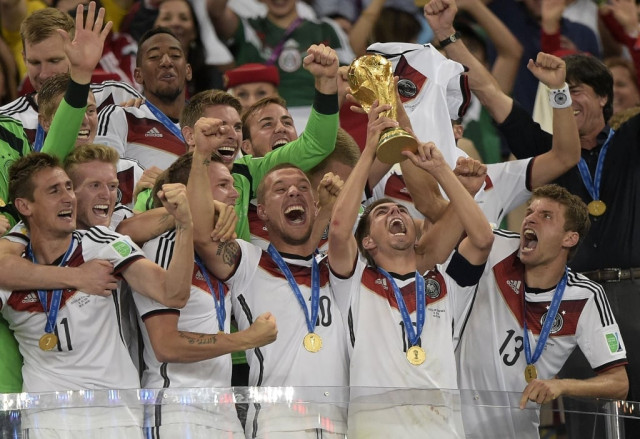
FIFA World Cup trophy to make its first transatlantic trip to Europe
However, a second Maracanazo was possible: Argentina; bitter rivals Argentina, and their giant of a captain Lionel Messi could lift the trophy there -- inside the biggest stadium in the world, inside their own home.
In a cruel twist, the Brazilians inside and outside the Maracana were supporting the Germans, their conquerors, hoping that they would not have to face the shame of seeing Argentina conquer Brazil.
The Germans were there after 24 years -- and long years they had been. It was at the turn of the century that they underwent a major upheaval in their football system, focusing heavily on their youth. The upheaval showed signs of promise, with impressive German performances in the last few major tournaments.
But tonight, they needed to change that promise to something more palpable; tonight the young Germans needed to come of age; tonight they had to vindicate 14 years of hard work.
On the other side of the pitch stood Messi and his men, clad in their away blue kit -- but they were the ones at home. South America had always belonged to South America, and no team from another continent had ever claimed the World Cup here.
Outside the stadium in the heart of Rio de Janeiro, the statue of Christ the Redeemer stood tall over the city. Inside it, the shadow of Maradona loomed larger over his heir.
Can Messi deliver the World Cup to Argentina with a sub-standard team like Maradona had done in 1986, or would the final be one step too many for the tired shoulders of Messi to carry the weight of an entire nation’s hope? The question was on everybody’s mind, and with his legacy secure, Messi was out to build on his legend.
The early exchanges of the match were tentative, as could be expected, with both teams feeling their way into the biggest match of their lives. A quick Argentine counter from a German freekick in the fifth minute of the game was the only time that the match came alive during the first 20 minutes.
In the 21st minute, Toni Kroos, who had been the tournament’s outstanding German player in midfield, headed a complacent ball back towards Manuel Neuer but it fell straight into the path of Higuain, who was suddenly one-on-one with the goalkeeper and odds on to score. However, he scuffed his chance, volleying it wide of the mark.
Less than 10 minutes later, he had the ball in the back of the net from a Lavezzi cross and he reeled away in sheer joy with his eyes wide open, screaming in delight, fists clenched, running but not caring where to.
It took nearly 10 seconds for reality to kick in, the linesman had his flag up: offside. The goal would not count.
The match once again lulled, and it was in the 40th minute that it suddenly burst to life -- along with Messi. The captain drove right into the heart of the German defence, causing panic and disarray where there usually is calm and confidence. It took a hurried clearance from Jerome Boateng to ensure that no Argentine player took advantage of the havoc that Messi had caused.
Just before half time, the German machine suddenly, ominously, clicked into gear and Ozil found an unmarked Schurrle on the edge of the box in the 43rd minute, scorer of a brace in the semi and a ruthless finisher, but he shot straight at Romero.
A minute later, Muller delivered a splendid left-footed cross that took even Miroslav Klose by surprise.
The usually sharp poacher could just see the ball float just out of his reach as he was caught wrong-footed. Two minutes later, into the first minute of stoppage time, the Germans came even more agonisingly close as Kroos’ superb corner was headed onto the post by Benedikt Howedes from six yards out.
The whistle soon blew after that, signalling the end of a half that was often dull but would suddenly burst into life. At the break it remained 0-0.
The second half started unlike the first one, with the first big chance coming just two minutes in. No one in Argentina would have wanted it to fall to any man but the one it fell to: Messi. He had a clear sight on goal and from the right side, took a shot.
For a second, the Maracana stood still, preparing to erupt. The ball though, went just wide, when many a time it would have gone in. It was then that the Argentines started to worry that it may not be Messi’s day.
The games tempo was visibly higher than that of the first half and when Neuer took out Higuain, tempers started to flare as yellow cards piled up.
Kroos came close in the 81st minute from an Ozil pullback, and should really have at least troubled Romero as he had a lot of time to place his shot. That was the last big chance of the match in normal time, and at the end of the 90th minute it stayed 0-0.
The Germans were quick off the mark in added time, with Schurrle testing Romero but hitting straight at him in the 91st minute.
A superb ball from Rojo in the 97th minute found Palacio after Hummels seemed to have misjudged his header. The striker tried to dink the ball over Neuer, but ended up hitting it with his shin and it sailed harmless wide.
With legs tiring, the match slowed down and five minutes into the second half of extra time, penalties seemed almost inevitable.
However, it was not to be.
In the 113th minute of the match, Schurrle embarked on a superb run down Argentina’s right hand side before lifting the ball towards Gotze, who chested the ball down and volleyed it on the full.
The ball hit the back of the net and the Maracana exploded, as Germans and Brazilians alike celebrated; the Germans in triumph, the Brazilians in relief.
Messi had a free-kick from around 30 yards out in the last minute of the game. As he stood over the ball, the world stood still.
It was time for Messi to deliver -- to score from a spot not that different from the one for his free-kick against Nigeria. The Argentinians prayed fervently, while the Maracana stood silent and the seconds ticked by slowly.
He ran up to take it, going for power instead of his trusted placement, as if too desperate to score. It sailed over, causing strong reactions from supporters -- the Germans roared while the Argentinians’ tears flowed; both knew it was over then.
The whistle came moments later, and united Germany were crowned champions for the first time -- a fourth star added to the three earned by West Germany. This team was hailed by many to be the best ever, and they proved that that may not have been hyperbole.
As the Germans celebrated, Messi stood staring almost questioningly at the night sky, tears rolling down his otherwise emotionless face. He would undoubtedly be replaying the chances that they had missed in the match.
First Higuain, then him and then Palacio; all scuffing their mark when it mattered the most. And while the footballing world may forget Higuain and Palacio, his legend will endure, forever tainted.
It was in 1990 that Franz Beckenbauer had gushed over the unification of Germany, saying that a united German football side would bring about a new era of dominance in international football.
It took them 24 years to realise that potential, but they did not care. They were champions of the Marcana, of Rio, of Brazil, of South America, and most importantly of the World.

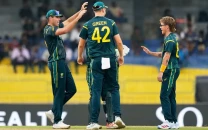
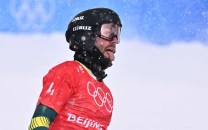
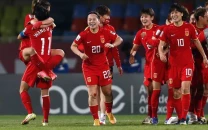
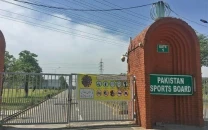
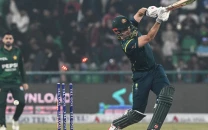
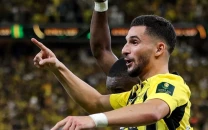












COMMENTS
Comments are moderated and generally will be posted if they are on-topic and not abusive.
For more information, please see our Comments FAQ